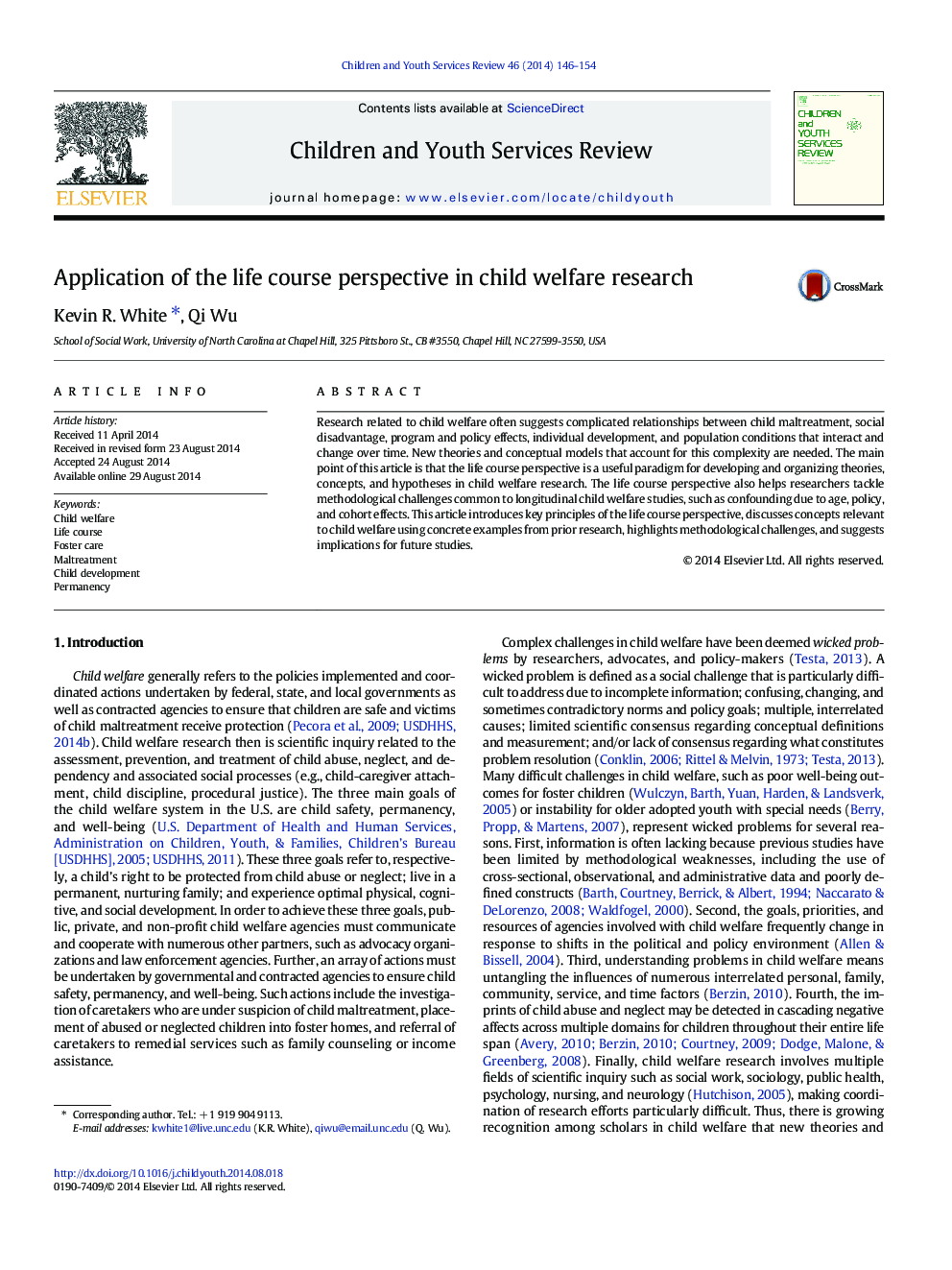| Article ID | Journal | Published Year | Pages | File Type |
|---|---|---|---|---|
| 6834157 | Children and Youth Services Review | 2014 | 9 Pages |
Abstract
Research related to child welfare often suggests complicated relationships between child maltreatment, social disadvantage, program and policy effects, individual development, and population conditions that interact and change over time. New theories and conceptual models that account for this complexity are needed. The main point of this article is that the life course perspective is a useful paradigm for developing and organizing theories, concepts, and hypotheses in child welfare research. The life course perspective also helps researchers tackle methodological challenges common to longitudinal child welfare studies, such as confounding due to age, policy, and cohort effects. This article introduces key principles of the life course perspective, discusses concepts relevant to child welfare using concrete examples from prior research, highlights methodological challenges, and suggests implications for future studies.
Related Topics
Health Sciences
Medicine and Dentistry
Perinatology, Pediatrics and Child Health
Authors
Kevin R. White, Qi Wu,
